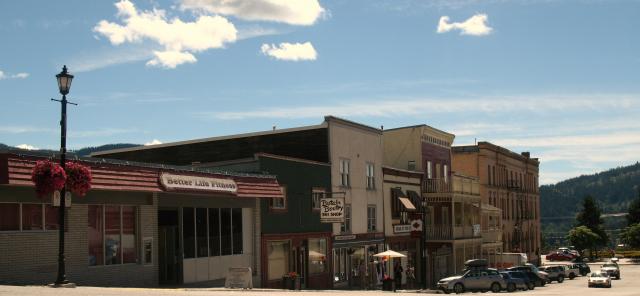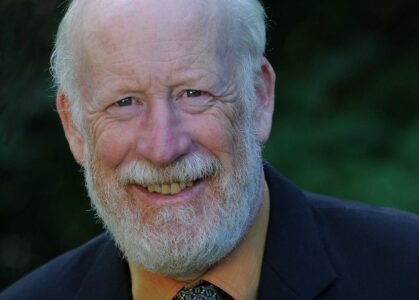Sustainable fireworks: a passionate discussion about the Golden City's economy
How do you create an economically sustainable city? More specifically, how can Rossland move towards becoming economically sustainable without raising taxes or cutting services? These questions among others were the general basis for an in depth and at times heated discussion at City Hall this past Monday night.
Presenting to a Committee of the Whole (COW), the Sustainability Commission first gave a progress update before launching into their recommendations on ways to move Rossland in a more sustainable economic direction.
“We’ve arrived at a concern that there is an urgency around the economy in Rossland that we think requires some higher level commitment and attention from a broader group than the economic development task force, “explained Kelvin Saldern, chair of the commission. “The economic situation–and we know this from what is going on around the world and in town–is a complex issue and there are some critical things going on right now. We have businesses that are on the brink of closing down. We have what I haven’t seen in a long time in Rossland: empty storefronts.”
Not solely focused on economic development issues, the commission has four task forces, each focussing on specific areas relating to sustainability including water stewardship, housing and affordability, community economic development and the newly added energy task force.
“Economic development crosses over a lot of areas in the strategic sustainability plan. Housing and economic development are integrally linked and of course environment underpins everything. We’re not abandoning or ignoring the other two pillars of the three pillars of the plan, but we feel there is urgency around economic development right now,” stressed Saldern.
In an effort to address the economic sustainability of Rossland, the commission put forth two recommendations to council Monday night. The first recommendation was focused on understanding. Broken down into A,B and C sections, 1A recommended conducting an independent review of city cost structure with the primary goal of understanding how do the city of Rossland’s operating costs, revenues and taxes compare to neighbours and other similar communities in the province. Sections B and C of the first recommendation were to research other costs of living in Rossland and understand the various other factors that affect life here beyond taxes—such as transportation, child care and services–that impact cost of living.
Following those two stages, recommendation two was to research possible solutions to the cost and revenue issues and embed them in an Economic Development action plan.
The first recommendation point drew the attention of council members, and ultimately it was decided that council was already taking action on item 1a and that this function did not need the Sustainability Commission to double up on the work.
“My problem is that you are assuming that previous councils have not been doing this,” said Councillor Laurie Charlton with some heat.
Saldern replied, “It’s not a criticism, Laurie. You don’t need to get defensive. We’re willing to help. If you have the answers, that’s great. Let’s talk about them. If you have the answers to 1A, then let’s leap into items B and C and get on with the next recommendation. We’re not saying you’re not doing your job.”
Councillor Charlton suggested that this work was outside of the realm of what the commission was supposed to be doing. “My beef has always been and will continue to be with the Sustainability Commission. We gave a mandate that says very clearly what you’re supposed to be doing and it is spelled out in the bylaws.”
In the most heated exchange of the evening, Saldern volleyed back, “I just want to point out that Councillor Charlton has once again found ways to criticize people who work very hard in a very long-winded manner. While he ran on the platform of supporting the sustainability plan, he has consistently in the last term voted against the ongoing work of the Sustainability Commission. That’s just some background to his comments.”
The commission’s second recommendation was to quickly move through the planning and research phase and concurrently create an Economic Development Action Plan.
“I mention an action plan here and not another strategic planning process… I think we can act in relatively short order,” added Saldern.
Such a plan is expected to include initiatives relating to business retention and expansion, attracting new residents and businesses to the community, capitalizing on economic development assets, and partnering with others where appropriate.
After largely staying out of the two hour-plus discussion and listening, Mayor Granstrom added his two cents on the issue:
“Rossland has been here for over 100 years and we didn’t get here because we fluked it. Between 1997 and 2009 my taxes went up $1,094 which is $91 a year over 12 years. That’s a lot of money but it isn’t the most negative thing out there. There is a lot of positive stuff here, ladies and gentleman. It’s bothering me right now because I’m not hearing a lot of positive stuff. Yes, we can do better. We have a very positive community, good positive support and very good volunteerism. Can we make the place better? Absolutely. Can we build on our volunteerism? Absolutely.
“Rossland has been adaptive to change forever and we’re not going to lose that. What we have to focus on is ‘what is affordability?’
” What I’m saying is we can sit around this room and say how bad we are, but we don’t sit around here very often and say how good we are. That’s what bothers me.
“I’d love to see a task force on how wonderful we are.
“We have a lot to sell here, and we don’t sell it. You know why we don’t sell it? Because a lot of us don’t want anyone else to be here. That’s a fact. A lot of people who move here don’t want more people here. You mention the golf course debacle. That may have appeared to be a watershed issue, but there were a lot of other issues at play there that had nothing to do with water.
“We have to remember that we have valuable asset sitting here and we have to be very careful with how we proceed. We could sell this place to the world, but do we want to? Be careful what you wish for.”
The issue of whether or not Rosslanders want to grow or may be purposefully holding back growth put forth by the mayor added a new dimension to the discussion.
“You’re right. There is a certain selfishness around this community,” observed Councillor Jill Spearn. “There’s no question, however, that we need an economic action plan. We’re on the brink and if we don’t do something soon we’ll start sliding the other way. It’s great if you are retired but communities don’t thrive on just that.”
After numerous attempts at a motion to recommend back to council on the issue, council unanimously approved recommendations 1B, C and 2 be referred back to the Sustainability Commission for work.
Leaving the analysis of the city’s operating costs, revenues and taxes up to the city, council has now put the ball back in the Sustainability Commissions court to take the lead on this project.
“While it seems like the decision making (at the COW meeting) was a little arduous or roundabout, we sort of ended up where we started in a way. The Commission is going to take on the task of these recommendations,” reflected Saldern.
Moving forward, the commission will now address these issues at its next regular meeting and get to work on deciding how they will put their research and action plan development into motion.
“We’ve been talking about this for a long time now, so it’s time we start making some things happen,” concluded Saldern.


























